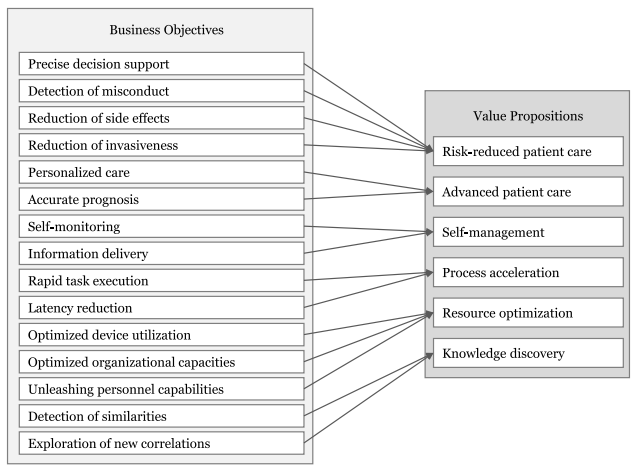
Introduction
The healthcare industry stands on the brink of a transformative shift, propelled by the integration of artificial intelligence (AI). As healthcare organisations grapple with the complexities of adopting AI, they find themselves at a crossroads: to either embrace the change or risk obsolescence. A survey conducted in 2021 showed that only 9% of respondents have successfully adopted sophisticated AI models into their practice while 32% are only in the early phases of implementing such models. This article examines the potential of AI to create business value and competitive advantage within healthcare.
The AI Landscape in Healthcare
AI’s reach in healthcare extends from diagnostics to therapy, with each application promising enhanced accuracy, efficiency, and patient outcomes by means of enhanced intelligence. These technological solutions, driven by sophisticated algorithms, are redefining medical decision-making. Yet, despite AI’s potential, its adoption remains nascent, with only a fraction of healthcare organisations fully realising its capabilities. The majority (60%) of healthcare facilities, according to a survey, are not actively considering AI solutions.
AI in Healthcare Value Creation
For healthcare organisations, the question isn’t just about adopting AI, but how to translate AI capabilities into tangible business value. A group of researchers in Germany analysed this question by using cases and expert insights, revealing how AI can support strategic objectives and deliver on value propositions such as risk-reduced patient care and process acceleration.

Overcoming Barriers to AI Adoption
While the advantages of AI are clear, its implementation faces significant hurdles. Slow adoption rates, a lack of comprehensive managerial understanding, and practical challenges such as data privacy and algorithmic transparency are among the key obstacles. Currently only a few practical examples of AI models in use are able to showcase the potential of AI. Furthermore, business strategies are not yet aligned to include AI investment opportunities. Addressing these concerns is crucial for healthcare organisations to leverage AI effectively.
The Future of AI in Healthcare
Looking ahead, the integration of AI in healthcare is poised to evolve rapidly. As organisations become more adept at leveraging AI’s potential, we anticipate a surge in value creation across the industry. This will not only improve patient care but also drive innovation and efficiency, securing a competitive edge for early adopters. The first use cases show AI technology’s unique capabilities (e.g., to make diagnoses accurate, faster, and more objective) that support one or more business objectives (e.g., rapid task execution, precise decision support) and unlock one or more value propositions.
Conclusion
AI in healthcare is more than a technological advancement; it’s a strategic imperative. By understanding and aligning AI applications with business objectives, healthcare organisations can unlock a wealth of value. The journey towards AI maturity may be fraught with challenges, but the rewards for patients and providers alike are undeniable.
